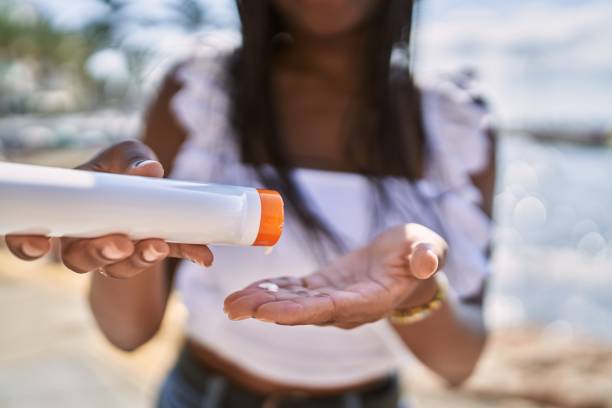Sunscreen, a Product Meant to Prevent Cancer, Can Also Cause It

What people call sunscreens or suntan lotions are topical products that limit how much solar radiation penetrates your skin. The most powerful forms of solar radiation can do intense damage to your body, especially your skin.
By applying sunscreen before going outside or onto the beach, people help protect their skin from the ravages of intense solar exposure. Although some sunshine is necessary for your body to synthesize vitamin D, too much sunshine puts you at risk of developing skin cancer.
Solar radiation is dangerous year-round, but many people only use sunscreens during the hottest part of the year when the sun is most powerful. Unfortunately, when you proactively reach for a product to protect you from the sun, you might wind up putting yourself at increased risk of leukemia, which is cancer of the parts of your body that make blood, like bone marrow.
How Could a Sunscreen Cause Cancer?
In theory, sunscreens are safe to use or at least considered safer than unmitigated solar exposure. However, the safety of sunscreens depends on how companies formulate the products. Recently, independent tests by laboratories have found that multiple popular kinds of sunscreen had benzene contamination.
Benzene is a known carcinogen linked to leukemia and other disorders of the blood. There has been a recall of the affected products, but not before people bought them. People trying to be responsible and protect themselves or their small children from skin cancer could unknowingly have increased their risk of developing leukemia instead.
Could Your Sunscreen Have Put You or Your Family at Risk?
For years, manually applying sunscreen lotion was the only option for those trying to reduce their skin cancer risk. Many movies have integrated jokes about the opaque white streaks left behind when someone applies sunscreen.
In recent years, manufacturers have introduced aerosol products that don’t require all that rubbing and also don’t leave behind a visible residue. Unfortunately, aerosol sunscreens are the only kind implicated in the recent testing for benzene.
The brands potentially affected by benzene contamination include:
- Aveeno® Protect + Refresh aerosol
- Neutrogena® Beach Defense® aerosol
- Neutrogena® Cool Dry Sport aerosol
- Neutrogena® Invisible Daily™ defense aerosol
- Neutrogena® Ultra Sheer® aerosol
If you have used any of these benzene-contaminated sunscreens and have been diagnosed with leukemia, call the experienced attorneys at McDermott & Hickey LLC for a free consultation.



